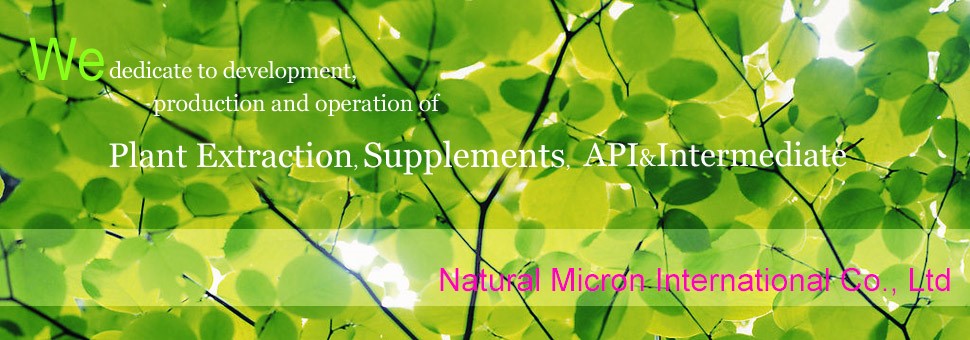
Contact Person: David
E-mail: davidxu@naturalmicron.com
jemma@naturalmicron.com
inquiry@naturalmicron.com
Add:Xiqing industry Zone, Tianjin,China
A study of Epicatechin's effects
Epicatechin - The Cocoa nutrient for 'lethal ills'
----By Michelle Roberts BBC News health reporter
A nutrient in cocoa called epicatechin appears to lower the risk of four common killer diseases, work suggests.
Among the Kuna people of Panama, who can drink up to 40 cups of cocoa per week, rates of stroke, heart disease, cancer and diabetes are less than 10%.The Kuna also appear to live longer than other Panama inhabitants and do not get dementia, a US scientist reports in Chemistry and Industry. Experts stressed that genes and other lifestyle factors also play a part. "For most Kuna people, it is the only thing they drink from when they are weaned to the day they die." Researcher Dr Norman Hollenberg However, researcher Dr Norman Hollenberg, of Harvard Medical School, says the cocoa chemical would benefit other populations too, including the Western world, although he concedes there may be ethnic differences.
And he acknowledges his studies are based on observations, so cannot provide cast iron proof.
The Kuna people
He has been investigating the effects of epicatechin in hundreds of elderly people from different cultures as well as hundreds of Kuna people over the last 15 years. "My interest began with the fact that Kuna people do not develop high blood pressure," he explained.
There are around 70,000 Kuna people, half living on the mainland half on Panama's San Blas islands"I was in search of protective genes but it turned out to be environmental because, when they migrated to the mainland with all the benefits of modern Western urban life, their blood pressure rose with age and hypertension became quite common." And death rates from ischemic heart disease, stroke, diabetes mellitus and cancer followed suit, his published work in the International Journal of Medical Sciences showed.
Dr Hollenberg believes the Kuna's local tipple is the key. "For most Kuna people, it is the only thing they drink from when they are weaned to the day they die." He says his findings are so significant that epicatechin should be considered essential in the diet and, therefore, classed as a vitamin.
'Essential vitamin'
At the moment, the science does not support epicatechin having an essential role, but there is plenty of evidence to suggest it could have a protective effect in the body. Epicatechin, a type of flavonoid, is also found in teas, wine, chocolate and some fruit and vegetables. "It may be that these diseases are the result of epicatechin deficiency" Daniel Fabricant of the Natural Products Association, One of its actions is thought to be through elevating levels of nitric oxide in the blood, which helps relax the blood vessels and improves blood flow. And its antioxidant properties could explain how it might stop cancers.
Nutrition expert Daniel Fabricant, vice president of scientific affairs at the Natural Products Association, said the link between high epicatechin consumption and a decreased risk of lethal diseases should be investigated further."It may be that these diseases are the result of epicatechin deficiency," he suggested. Flavanols like epicatechin are removed for commercial cocoas because they tend to have a bitter taste.
Experts have also questioned whether it would be advisable and feasible to eat large enough quantities of epicatechin-containing foods such as wine and chocolate.
Dr Hollenberg, who is a scientific advisor to several big pharmaceutical companies and has received financial backing for his research from the M&M/Mars Company, believes there is scope for nutritional companies to develop epicatechin supplements, such as chocolate bars.
Indeed, Mars puts its Cocoapro logo on confectionery packaging to signify products that have undergone its proprietary method for processing cocoa beans to preserve flavonoid.
Paul Kroon of the Institute of Food Research said drug companies might want to design new drugs to mimic epicatechin's structure and actions.
"But it's early days. And there is a danger with taking a reductionist approach and trying to single out one particular chemical in foods. Often its the mixture that is important," he said.
Ellen Mason, cardiac nurse at the British Heart Foundation, said: "This is an interesting observation of a unique culture."
But she added: "We do not advise that people in the UK take up drinking cocoa in high quantities in order to protect their hearts."




